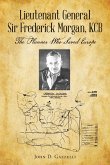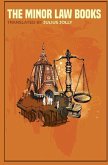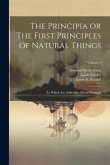Darcy G. Richardson's latest book, a political biography of six-time Socialist Party presidential aspirant Norman M. Thomas, takes an in-depth look at the former Presbyterian minister's candidacy and those of the country's other minor-party candidates in the 1944 presidential election. With the nation focused on the global menace posed by Hitler and the Axis powers, the 1944 presidential campaign was an extraordinarily difficult one for the country's nationally-organized minor parties, the hardy perennials of American politics. Thomas, who had garnered more than 884,000 votes at the height of the Great Depression in 1932 and was known to millions as "America's Conscience," described the wartime contest between President Franklin D. Roosevelt and Republican Thomas E. Dewey as the most disappointing of his half-dozen bids for the Oval Office. Waged against impossibly long odds, the perennial Socialist candidate -- arguably the most consistent civil libertarian in American history -- was nevertheless more proud of his 1944 effort than any of his other campaigns for the presidency. Similarly, the Prohibition Party's colorful Claude Watson --- severely restricted in his ability to freely roam the country and completely ignored by the so-called "Greatest Generation" --- struggled to get his message out, while little-known steelworker Edward Teichert of the tiny yet tenacious Socialist Labor Party, valiantly out-hustling each of his opponents while traveling coast-to-coast in an automobile, was hardly noticed.Richardson's narrative also examines the neglected story of former Secretary of War and ex-Kansas Gov. Harry Woodring's aborted attempt to launch a nationally-organized American Commonwealth Party to oppose FDR's fourth term, and the role later played by the relatively well-financed Texas Regulars and other southern-based unpledged electoral slates to deny Roosevelt an Electoral College majority.Except for the newly-organized Liberal Party of New York, dreaming of occupying the White House in 1948, it was an unusually bleak year for the few brave souls offering an alternative vision for postwar America while challenging the country's entrenched duopoly which had never completely pulled the country out of the deepest depression in the nation's history.
Hinweis: Dieser Artikel kann nur an eine deutsche Lieferadresse ausgeliefert werden.
Hinweis: Dieser Artikel kann nur an eine deutsche Lieferadresse ausgeliefert werden.








